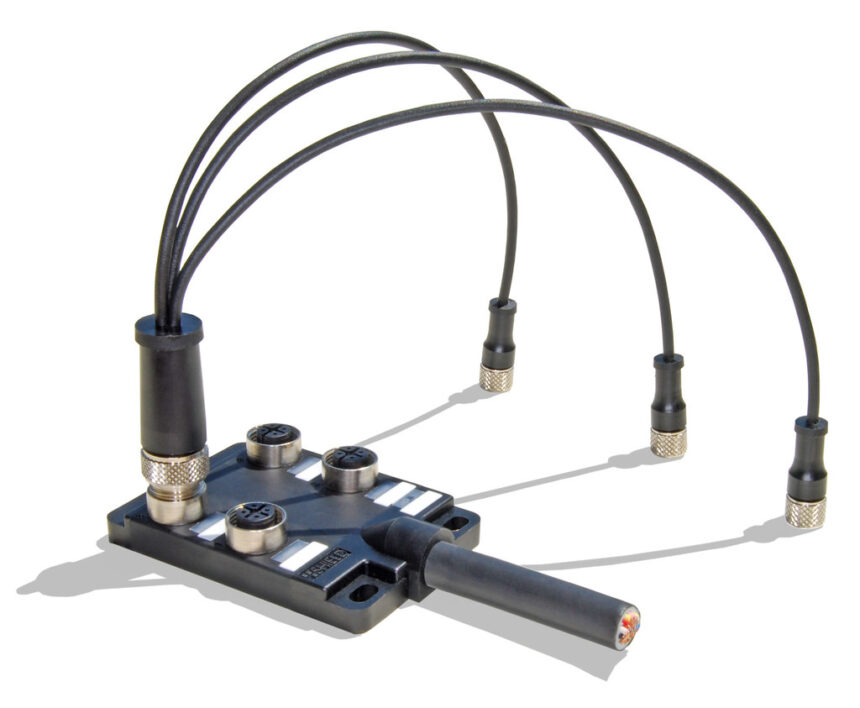Taiwan has always relied on the semiconductor industry as a strategic weapon, with its “silicon shield” often being referred to.
Taiwan’s dominant position in the chip industry, especially via Taiwan Semiconductor Manufacturing Company(TSMC), provides it with a unique protection against any potential Chinese aggression.
TSMC’s recent decisions to expand into the US, Japan and Germany raises critical questions. Could these global moves dilute Taiwan’s “silicon shield” or are they a necessary response to increasing geopolitical tensions?
What is Taiwan’s Silicon Shield?
Taiwan’s “silicon shield” is a concept which suggests that Taiwan’s dominance of semiconductor manufacturing through companies such as TSMC offers the island a strategic form of protection from potential military aggression by China.
Taiwan is a major producer of semiconductors in the world. Any disruptions to Taiwan’s semiconductor industry could have serious consequences on global supply chains.
This argument was made by Taiwanese president Tsai ing-wen, who wrote in an article in Foreign Affairs in September 2021:
Our semiconductor industry is particularly significant. It’s a “silicon shield” that protects Taiwan and other countries from authoritarian regimes’ aggressive efforts to disrupt global supply chain.
Taiwan is home to over 90% of world’s advanced chips. These are vital for smartphones, computer equipment, military gear, and many other technologies.
TSMC is the supplier of cutting-edge technology for major companies like Apple, Nvidia and Apple.
Loss of Taiwanese semiconductor production would cripple global industries, and create strong incentives for countries to defend Taiwan.
The interdependence of the world’s economies, such as China, should act as a barrier to war, since major powers would not want to put at risk global economic stability by attacking Taiwan.
China will also not be willing to give up access to Taiwanese chips, for which there are no alternatives.
US boosts semiconductor production by TSMC
Concerns about reliance on Asia as a source of critical technologies have led the United States to lead efforts to localize production.
TSMC’s decision to heavily invest in the US forms part of a broader supply chain diversification strategy.
The first factory is expected to start operations in Arizona in 2024.
TSMC is expected to invest $65 billion total in the US, with $6.6 billion of government subsidy and $5 billion as potential loans.
The US CHIPS and Science Act provides over $50 billion for grants to domestic research and manufacturing of semiconductors.
It is important to strengthen the national security and reduce reliance on sources from abroad.
The US is aiming to increase its production of advanced chips by 20% in 2030. This represents a substantial improvement over the current situation.
Japan and Germany join the fray
Japan and Germany also recognize the importance of protecting their semiconductor supply chain.
Japan is home to several major automotive and electronics companies. TSMC has partnered to build a Kumamoto factory.
This venture is receiving substantial support from the Japanese government, and is expected to manufacture chips for several industries including automotive, consumer electronics, and other.
Germany leads the way in Europe with the building of a new semi-conductor factory at Dresden.
The European Semiconductor Manufacturing Company, which includes this facility, is a joint-venture between TSMC with European companies like Bosch and Infineon.
Statista
TSMC began construction on its Dresden factory earlier this week.
The factory is scheduled to begin production in 2027 with an emphasis on automotive chips. It is the first TSMC facility in Europe and will create 2,000 new jobs.
It is indicative of the importance of this factory that the German Chancellor Olaf Scholz, as well as the President of the European Commission Ursula von der Leyen both attended the ceremony to start construction on the site.
This project is of great importance to Europe, and the European Commission approved a financial contribution worth EUR5 billion ($5.5billion) for it.
What is the concern about Taiwan’s Silicon Shield?
TSMC’s expansion into the global market is often seen as a response to geopolitical demands, but it has also raised concerns over the possible weakening Taiwan’s “silicon shield.”
Taiwanese are worried that the decision to construct factories abroad, notably in Japan, Germany and the US, could diminish its strategic significance.
Some critics claim that TSMC’s diversification of production may unintentionally weaken Taiwan’s geopolitical influence.
Taiwan’s position as the global semiconductor hub may be in doubt if other countries are able to produce semiconductors.
In a CNN article, Chris Miller said:
“TSMC’s decision to increase its Arizona investment shows that geopolitical and political risks are playing a larger role in supply chain decisions than they did previously.”
It also indicates that TSMC customers want more geographical diversification. This was not a major concern for customers in the past.
Wen-Ti Sung is a political science professor at the Australia National University, who has taught in its Taiwan Studies Program. He said that Western efforts to reduce Taiwan’s “indispensability”, are a danger.
Sung added,
It is risky to reduce Taiwan’s monopoly, and thus its irreplaceability. However, I am cautiously optimistic regarding the impact on overall security.
Experts have also questioned whether or not the shield will be able to deter Chinese aggression.
Matthew Fulco is a geopolitical expert who wrote an article in The Japan Times.
The Chinese Communist Party does not give much thought to semiconductors. Taiwan, for the Chinese Communist Party, is a deeply emotional issue, born of the desire to exact revenge on Japan and the United States.
Fulco said that the CCP is willing to pay the price of collateral damage caused to China’s economy by the loss of access to Taiwanese semiconductors.
He said that “China’s massive industrial base might be able to weather this storm better than countries who have outsourced manufacturing in the last few decades, reducing labor costs and boosting profits.”
Taiwan is still a key player in advanced chip manufacturing
Despite this concern, it’s important to realize that TSMC factories overseas will not be producing the most advanced semi-conductors.
New facilities are being built in Germany, Japan and the US to produce chips that will be used by specific industries such as consumer electronics and automotive.
The factories that TSMC has in Taiwan will mainly produce chips below 28 nanometers, but still crucial to many applications.
Taiwan will manufacture TSMC’s advanced semiconductors including 2-nanometer chip.
Source: McKinsey and Company
It is planning to expand its operation on the island by building new factories in Kaohsiung and Hsinchu.
Mark Liu has stated that TSMC will continue to operate its most advanced operations in Taiwan where the company has established technology, facilities and a highly skilled workforce.
Chen, of CL Securities told CNN that national security fears among governments worldwide are driving TSMC’s expansion. However, the company plans to continue manufacturing its most advanced technologies at home.
He said that this would be economically sensible, given the higher salaries of Taiwanese engineering professionals and the better quality of their work. However, the Ministry of Economic Affairs in Taiwan must approve the move of its advanced technologies to other countries, something it is unlikely to do.
What is next for Taiwan’s silicon shield
TSMC’s global expansion is a balance between maintaining Taiwan’s strategic significance and diversification.
By building overseas factories, TSMC addresses the concerns of major customers as well as governments that want to decrease their reliance on a solitary source.
The company also ensures that the most advanced technology remains in Taiwan to maintain its competitive advantage and Taiwan’s position in the global industry of semiconductors.
It is difficult to answer the question whether Taiwan’s “silicon shield” will be affected by this development.
Diversification in semiconductor production reduces Taiwan’s exclusivity over the industry but also increases global supply chain reliability.
TSMC’s global expansion reflects the dynamic changes in the semiconductor industry.
Taiwan may change its role as countries such as the US, Japan and Germany look to protect their supply chains of semiconductors, but the country will still remain an important player in technology which powers modern society.
This post, Is Taiwan’s’silicon Shield’ weakening while TSMC is expanding globally? The post may change as the updates unfold






